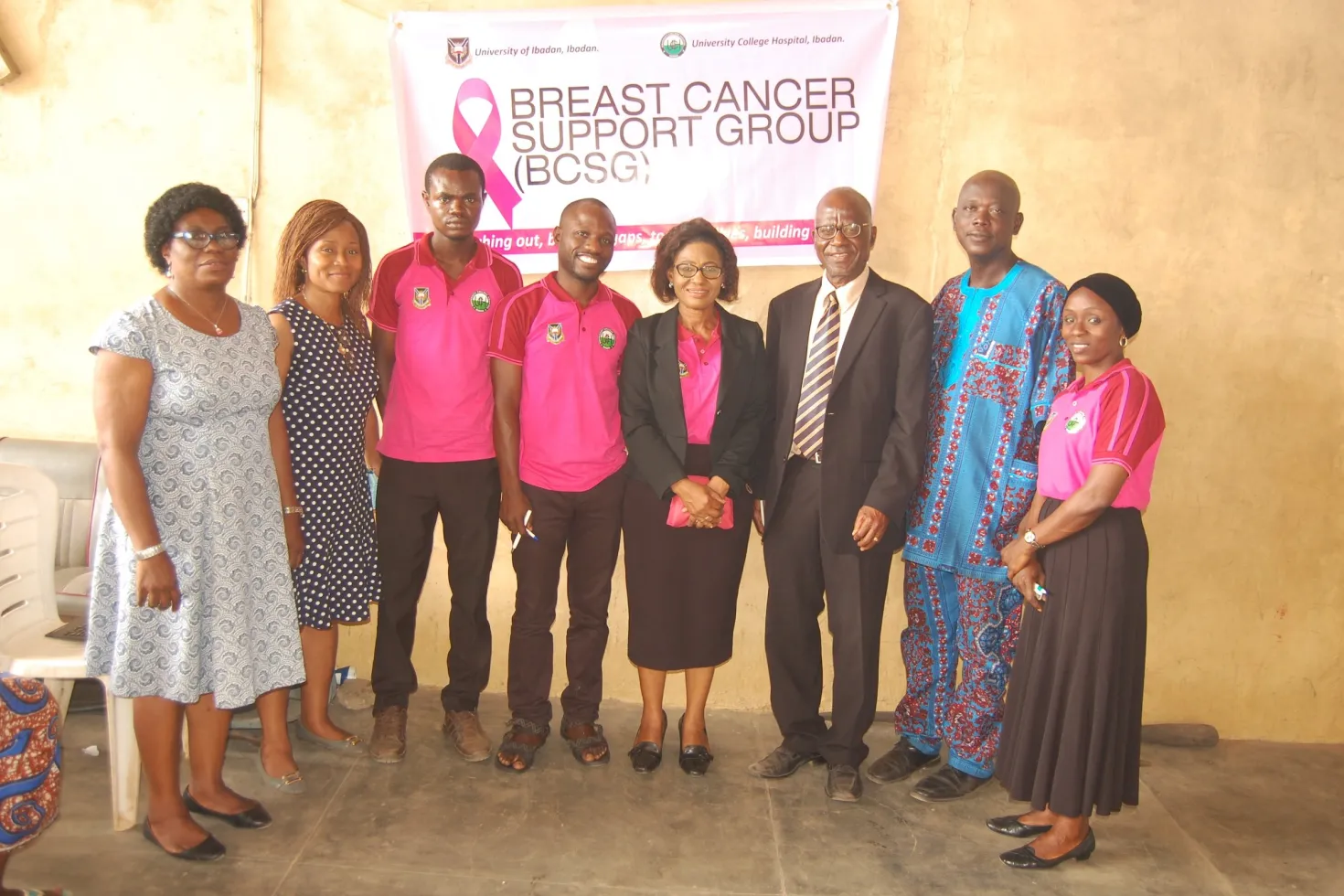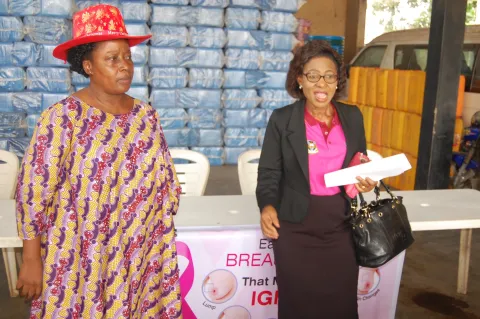Improving information and support for metastatic breast cancer patients in Nigeria

Context

Women often present at the University College Hospital in Ibadan, Nigeria with late stage breast cancer mostly due to lack of awareness.[1] Researchers at the University of Ibadan observed that women with late-stage or metastatic breast cancer (MBC) often lacked the psychosocial support needed to enable them cope effectively.[2] The University of Ibadan’s main objectives in this project were to identify the MBC patients at the University College Hospital and enhance their quality of life through the provision of support and information, in addition to increasing early detection rates. These objectives were accomplished through the development of breast cancer educational materials, creating a support group, and launching outreach activities in the community.
The University of Ibadan’s vision is to achieve academic excellence, focused on meeting societal needs. A key aspect of its mission is to expand the frontiers of knowledge through provision of excellent conditions for learning and research.
Project description

The University of Ibadan was one of twenty organisations awarded a SPARC MBC Challenge grant in 2017. In the first phase of the project, the University of Ibadan trained healthcare professionals at the surgical and radiation oncology unit of the University College Hospital (the primary tertiary healthcare facility in Nigeria) to assess the emotional state (distress) of breast cancer patients they used the National Comprehensive Cancer Network (NCCN) distress thermometer and problem list and to assess patients’ quality of life they used the European health-related quality of life instrument (EORTC QLQ C30). This data served as a baseline on the quality of life and distress levels of the patients. The number of breast cancer patients who were in the late (stages 3 and 4) of their disease were also quantified.

Patients were invited to participate in a breast cancer support group, which was designed to provide education and information about their disease and diagnosis, as well as enhance their quality of life via psychological interventions. Support was also provided in terms of patient navigation. All support group members were asked to participate in a post-intervention assessment to determine the effectiveness of the support group on improving their distress levels.
In addition to this study, the University of Ibadan held talks on breast cancer prevention and control, and produced information on breast cancer, including screening, in the form of leaflets and videos in the three major languages of Nigeria: Ibo, Yoruba and Hausa.
Impact

The University of Ibadan trained 15 nurses at the University College Hospital and assessed the quality of life and distress levels of 158 breast cancer patients. 65% of these patients were found to have metastatic disease. Over the year of the SPARC grant, 96 patients total participated in the support group which continues to meet regularly.
Eighteen of the breast cancer patients who attended the support group completed the quality of life and distress questionnaire both pre and post intervention. Results indicated that there was significant improvement in the emotional and functional wellbeing of these patients at the end of the eight sessions.
Outreach activities were conducted in markets, schools and churches reaching a total of 2,650 women within the timeframe of the project, with some women detecting breast cancer as a result of this increased awareness. Furthermore, students were trained on how to do breast self-examination. Information materials on breast cancer were created and shared via social media, television and radio to further educate people about breast cancer.
The University of Ibadan has also collaborated with the University of Nigeria Teaching Hospital (UNTH) of Enugu, another SPARC grantee, by participating in a three-day training on the topic “Establishing of a patient navigation programme” delivered by the UNTH.
The University of Ibadan indicated that the project will be shared with other clinics for a possible further implementation and highlighted that collaborations have been initiated with the Department of Radiation Oncology and with a local foundation. In the future, the University of Ibadan will continue to consolidate on the gains of the project and to help other neighbouring institutions build similar structures.
More
Organisation’s website: Breast cancer support group- University of Ibadan
References
[1] Asuzu C, Campbell O, Asuzu M. Needs assessment of onco-radiotherapy patients for psychotherapeutic and counselling care at the University College Hospital, Ibadan. Psycho-Oncology. 2007;16: S35-S6.
[2] Asuzu, C and Akin-Odanye EO (2015). The Delivery of Psychosocial Services in an Oncology Setting: the Ibadan Experience. Journal of Clinical Trials Vol.5. No.3: http://dx.doi.org/2167-0870.1000228 1-4.
(Information from the project description and context is compiled from the SPARC reports)
Last update
Friday 03 February 2023